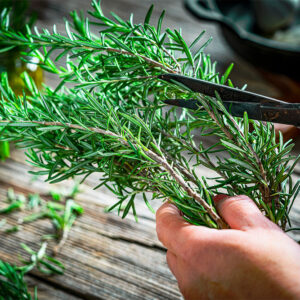
A WARNING for Night Owls
Do you thrive after dark and struggle to wake up early?
If so, your late-night tendencies could put you at greater risk of developing diabetes.
Emerging research shows that night owls—those who prefer staying up late and sleeping longer—have higher odds of metabolic disorders than early birds.
But it’s NOT your fault. And you CAN do something about it.
A recent study published in the Annals of Internal Medicine found that going to bed late and getting up late is linked to a 19 percent higher risk of diabetes, even when other lifestyle factors are considered.
But your late-night tendencies likely aren’t just a bad habit. They’re literally coded into your genes.
You see, we all have something called a “chronotype” or a circadian preference. Your chronotype is the time when you prefer to sleep and wake up.
Some of us like to go to bed early (early birds), while others want to stay up late (night owls).
Your chronotype is partially determined by your genes, which makes it hard to change. But that’s not the WHOLE story.
Most people have a time of day when they prefer to be alone or to socialize, which drives a lot of early-birding or night-owling. But why do night owls have problems with blood sugar?
The researchers found that BEFORE taking lifestyle factors into account, folks who stay up late were 72 percent more likely to have diabetes than those who tucked in early.
It turns out that when compared to morning folks, night owls…
- drink more alcohol,
- smoke more,
- sit more,
- get less sleep,
- exercise less,
- and weigh more.
Scientists also believe our body’s internal clock affects how well we process sugar and insulin throughout the day. This is likely linked to sun exposure, and early birds are naturally exposed to more sun.
So, what do you do if you prefer to stay up until the wee hours of the night?
Start paying closer attention to all those lifestyle factors that can help or harm your health, including sleep, exercise, alcohol, and diet.
You can get more light exposure by buying lightbulbs that mimic natural sunlight. You can also incorporate an exercise program into your nightly routine. Plus, don’t overindulge in alcohol and commit to eating healthier.
Don’t let your late-night preferences put you on the fast track to diabetes. A few simple changes tailored to your night owl habits can get your body clock back on track and reduce your risk of developing the disease.
P.S. Common sleep mistake could trigger CANCER.
Source:
“Chronotype, Unhealthy Lifestyle, and Diabetes Risk in Middle-Aged U.S. Women: A Prospective Cohort Study,” Annals of Internal Medicine, 12 September 2023, doi. org / 10.7326/M23-0728
Written By Dr. Scott Olson, ND
Nearly 25 years ago, failed mainstream medical treatments left Dr. Olson in constant pain – and his health in ruins. And that’s when he did something REVOLUTIONARY. He began his career in medicine – and dedicated his life to uncovering the true, underlying causes of disease.
Through his innovative medical practices in Tennessee and Colorado, Dr. Olson has helped cure countless seniors from across America of arthritis… heart disease… diabetes… and even cancer. All without risky prescription drugs or painful surgeries.
View More Free Articles
America’s Next Prescription Epidemic?
It started with a prescription to help you stay focused… But now, for millions of Americans, that little orange pill bottle could be a gateway to something much darker. According to a brand-new national study, one in four adults prescribed stimulants for ADHD is misusing them—and nearly one in 10 has developed a full-blown use...
Is Your Diet ACTUALLY Healthy? Here’s How to Tell
I’ve probably uttered the phrase “healthy diet” when talking to patients, family, and friends more times than I’ve had cups of coffee—and that’s saying something! But I’ll admit it’s not always entirely clear what a healthy diet looks like. What does healthy eating really mean? Let’s take a look… Good news—healthy eating doesn’t mean you...
7 Natural Ways to Tackle Pain Without Pills
On Tuesday, we explored a promising new frontier in pain relief: terpenes, natural compounds found in cannabis (and other plants) that may ease pain without the risks of opioids. That research is still developing. But what if you’re looking for help right now? Good news: You don’t have to wait for a pharmaceutical breakthrough to...
Mailbag: Pinched to Pain Free with Natural Sciatica Solutions
“I have been suffering from sciatic pain in my hip and groin. I try to do exercises to stretch it. But ever since I slipped on the ice and fell on my left hip it seems to be getting worse. Is there any help for this?” -Painfully Pinched Dear Pinched, I understand how frustrating sciatic...
New Cannabis Discovery Could Ease Pain—Without the High
A few years ago, everywhere you turned, someone was talking about CBD. The cannabis extract had exploded in popularity for everything from anxiety to inflammation to joint pain. And while the CBD conversation continues, another cannabis compound is quietly making headlines. One that could—believe it or not—provide relief from all kinds of pain. Without the...
"Sinful Trio" SLASHES Metabolic Syndrome Risk
Are you tired of hearing your doctor’s endless “don’t eat this, don’t drink that” lectures? Well, this Easter Sunday, I’ve got news that might just have you hopping happily to your pantry. Turns out, some of life’s tastiest pleasures could help protect you from one of today’s most common health threats—metabolic syndrome. Let’s dig into...
Microplastics’ Hidden Link to Chronic Disease EXPOSED
By now, you’ve heard about microplastics. These tiny fragments of plastic have invaded virtually every corner of our planet. We’re just beginning to understand the scope of the threat, but we know microplastics pose a serious risk to our health. If you’re like many folks, you’ve shrugged off those dangers, thinking there’s nothing you can...
Shakespeare’s “Remembrance” Herb Protects Memory
You probably have a jar of rosemary sitting in your spice rack. Perhaps you sprinkle it on potatoes or add it to roast chicken. But what if this humble herb could hold the key to fighting one of the most devastating diseases we can face as we age? It turns out a hidden compound inside...
Is Your Gut “Good”? How to Check
I always get asked, “How do I know if my digestion is working right?” Well, the answer is pretty simple, but it’s also a little gross. A simple test you can do at home reveals whether your digestion is normal or not. Your digestive system processes everything you eat—extracting nutrients, and eliminating waste. The time...
Hidden Sugar Trap Fuels Lung Cancer
We’ve long known that smoking is the main villain behind lung cancer. But what if your dinner plate has quietly joined forces with the enemy? A new study from the University of Florida reveals that the typical Western diet could be laying the groundwork for aggressive lung cancer growth by feeding tumors with stored sugar....









